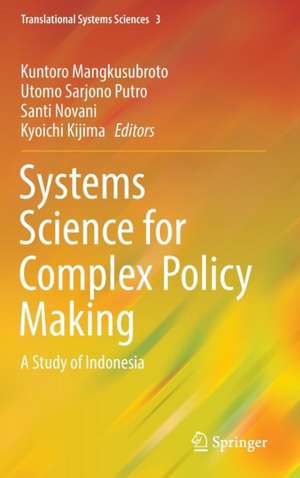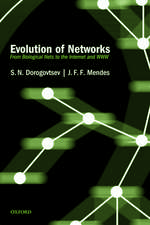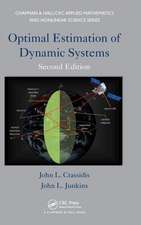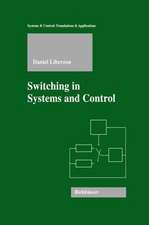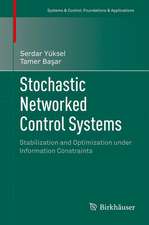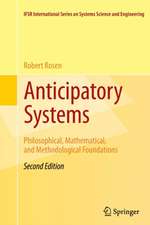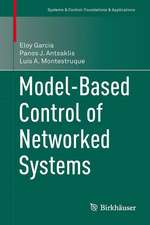Systems Science for Complex Policy Making: A Study of Indonesia: Translational Systems Sciences, cartea 3
Editat de Kuntoro Mangkusubroto, Utomo Sarjono Putro, Santi Novani, Kyoichi Kijimaen Limba Engleză Hardback – 3 iun 2016
| Toate formatele și edițiile | Preț | Express |
|---|---|---|
| Paperback (1) | 377.95 lei 6-8 săpt. | |
| Springer – 7 iun 2018 | 377.95 lei 6-8 săpt. | |
| Hardback (1) | 385.08 lei 6-8 săpt. | |
| Springer – 3 iun 2016 | 385.08 lei 6-8 săpt. |
Din seria Translational Systems Sciences
- 20%
 Preț: 628.87 lei
Preț: 628.87 lei - 15%
 Preț: 642.51 lei
Preț: 642.51 lei - 18%
 Preț: 948.92 lei
Preț: 948.92 lei - 18%
 Preț: 786.52 lei
Preț: 786.52 lei - 20%
 Preț: 661.65 lei
Preț: 661.65 lei - 18%
 Preț: 720.68 lei
Preț: 720.68 lei - 18%
 Preț: 782.57 lei
Preț: 782.57 lei -
 Preț: 384.09 lei
Preț: 384.09 lei - 18%
 Preț: 728.43 lei
Preț: 728.43 lei -
 Preț: 447.24 lei
Preț: 447.24 lei - 15%
 Preț: 654.30 lei
Preț: 654.30 lei - 18%
 Preț: 783.20 lei
Preț: 783.20 lei -
 Preț: 389.11 lei
Preț: 389.11 lei - 18%
 Preț: 882.82 lei
Preț: 882.82 lei - 18%
 Preț: 884.22 lei
Preț: 884.22 lei - 18%
 Preț: 728.91 lei
Preț: 728.91 lei - 18%
 Preț: 723.69 lei
Preț: 723.69 lei - 18%
 Preț: 776.09 lei
Preț: 776.09 lei - 18%
 Preț: 891.48 lei
Preț: 891.48 lei - 18%
 Preț: 1106.31 lei
Preț: 1106.31 lei - 18%
 Preț: 1106.79 lei
Preț: 1106.79 lei - 18%
 Preț: 775.30 lei
Preț: 775.30 lei - 15%
 Preț: 635.65 lei
Preț: 635.65 lei - 18%
 Preț: 941.68 lei
Preț: 941.68 lei - 18%
 Preț: 944.99 lei
Preț: 944.99 lei - 18%
 Preț: 1113.26 lei
Preț: 1113.26 lei - 18%
 Preț: 1114.02 lei
Preț: 1114.02 lei
Preț: 385.08 lei
Nou
Puncte Express: 578
Preț estimativ în valută:
73.68€ • 76.93$ • 60.98£
73.68€ • 76.93$ • 60.98£
Carte tipărită la comandă
Livrare economică 04-18 aprilie
Preluare comenzi: 021 569.72.76
Specificații
ISBN-13: 9784431552727
ISBN-10: 4431552723
Pagini: 200
Ilustrații: VII, 108 p. 21 illus., 16 illus. in color.
Dimensiuni: 155 x 235 x 13 mm
Greutate: 0.35 kg
Ediția:1st ed. 2016
Editura: Springer
Colecția Springer
Seria Translational Systems Sciences
Locul publicării:Tokyo, Japan
ISBN-10: 4431552723
Pagini: 200
Ilustrații: VII, 108 p. 21 illus., 16 illus. in color.
Dimensiuni: 155 x 235 x 13 mm
Greutate: 0.35 kg
Ediția:1st ed. 2016
Editura: Springer
Colecția Springer
Seria Translational Systems Sciences
Locul publicării:Tokyo, Japan
Public țintă
ResearchCuprins
Supporting Decision Making for a Republic Under a Complex System.- Value Co-creation Platform as Part of an Integrative Group Model-Building Process in Policy Development in Indonesia.- The Effect of Sharing Information on Learning Process in Experimental Duopoly Game: A Case from Indonesia.- Value Co-creation on Cloud Computing: A Case Study of Bandung City, Indonesia.- Social Interaction in Travel Behaviour: Insights for Developing Effective Travel Demand Management for Indonesia.- Unfolding the Problem of Batik Waste Pollution inJenes River, Surakarta, using Critical System Heuristics and Drama-Theoretic Dilemma Analysis.
Textul de pe ultima copertă
This volume applies a systems science perspective to complex policy making dynamics, using the case of Indonesia to illustrate the concepts. Indonesia is an archipelago with a high heterogeneity. Her people consist of 1,340 tribes who are scattered over 17,508 islands. Every region has different natural strengths and conditions. In the national development process all regions depend on one another other while optimizing their own conditions. In addition to this diversity, Indonesia also employs a democratic system of government with high regional autonomy. A democratic government puts a high value on individual freedom, but on the other hand, conflicts of interest also occur frequently. High regional autonomy also often causes problems in coordination among agencies and regional governments. This uniqueness creates a kind of complexity that is rarely found in other countries.These daily complexities requires intensive interaction, negotiation processes, and coordination. Such necessities should be considered in public policy making and in managing the implementation of national development programs. In this context, common theories and best practices generated on the basis of more simplified assumptions often fail. Systems science offer a way of thinking that can take into account and potentially overcome these complexities. However, efforts to apply systems science massively and continuously in real policy making by involving many stakeholders are still rarely carried out. The first part of the book discusses the gap between the existing public policy-making approach and needs in the real world. After that, the characteristics of the appropriate policy-making process in a complex environment and how this process can be carried are described. In later sections, important systems science concepts that can be applied in managing these complexities are discussed. Finally, the efforts to apply these concepts in real cases in Indonesia are described.
Caracteristici
Focuses on the application of systems science methodologies in real-world policy making Uses multidisciplinary approaches such as qualitative, quantitative, and simulation methods for complex policy making Employs empirical results obtained from real phenomena in Indonesian society Includes supplementary material: sn.pub/extras
